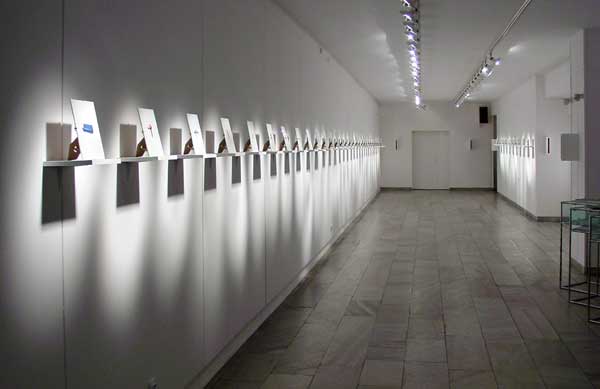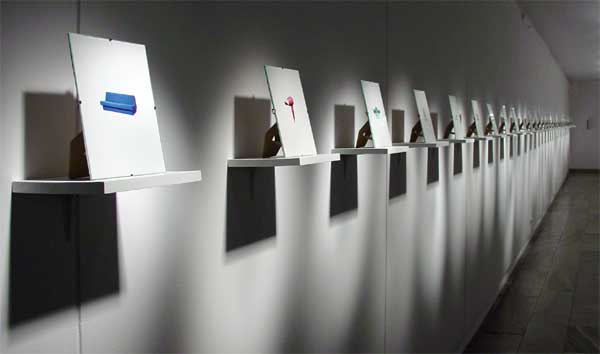 |
|||||
 |
|||||
 |
|||||
"Objects bear witness to their creators who reveal something of their personality in the act of creation, but the creators cannot be seen in their creations. The appearance of objects does not reveal people who produce them, as it does not reveal the onlooker who comprehends this. This is the starting point for the image of the new man."
Harun Farocki
Individual and common consciousness are not separate elements, functioning in separate worlds, although they undoubtedly differ as to the limits of freedom. Similarly, the way (and sense) in which the contemporary image of reality, created by means of photography, functions, is not a separate existential sequence. Nowadays, as we know, photography and its "derivatives", like film and video, create illusions, myths and icons.
Krzysztof J. Baranowski
|
|||||
 |
 |
 |
|||
 |
 |
 |
|||
 |
 |
 |
|||
Installation STILL LIFE- 49 coloured photograph from leaflets of supermarkets
|
|||||
 |
 |
||||
 |
 |
||||
 |
 |
||||
 |
 |
||||
5 books with cut up bilbordów under title:
|
|||||
Questionnaire: STILL LIFE |
|||||
Copyright ©2002 Galeria FF ŁDK.